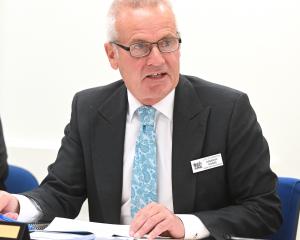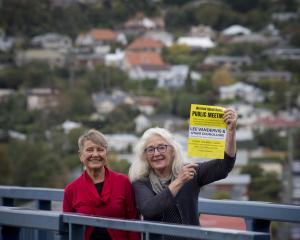Fears are increasing over whether Dunedin City Council can meet its self-imposed carbon neutral 2030 goal.
The council agreed to a new zero carbon policy yesterday, almost four years after the council declared the city in a state of climate emergency.
The vote was carried 10 to four with Crs Mike Lord, Jules Radich, Lee Vandervis and Andrew Whiley voting against the policy.
Cr Steve Walker said the previously adopted carbon management policy was no longer relevant to the goals of the council. Small moves were made towards carbon neutrality in the meantime but many councillors echoed there was little to show for their efforts.
Many councillors who spoke — including Crs Christine Garey and Carmen Houlahan — were concerned action on reducing carbon emissions was not happening fast enough to meet expectations of the public.
Cr Walker answered the councillors’ concerns by stating the Carbon Zero 2030 goal — which is 20 years ahead of the Government’s 2050 one — was an aspiration to ensure the council got moving with plans.
Cr Walker quoted Mark Twain saying "the more haste the less speed", emphasising the need to move carefully so people’s expectations were met.
The policy would inform a plan on city emissions reduction due next year.
Councillors approved a submission to the Government, while making some amendments, on its Emissions Reduction Plan.
They made amendments in the submission to address how the Government had classified Dunedin as a tier two city, which would affect the budget allocated to the city for continuing the decarbonisation of the transport sector.
The amendment agreed on challenging the classification said Dunedin covered a wide geographical area, and the council was concerned being a tier two city would make it more difficult for the city to provide public transport to under-served areas.
The discussion devolved into an arguments when Cr Vandervis questioned the report saying Maori were uniquely affected by climate change.
Council Maori, partnerships and policy general manager Jeanette Wikaira said it was because both runaka with ancestral connections to the land would be affected by climate change as their resources and taonga were in low-lying areas.
She also told Cr Vandervis the journey towards social deprivation for Maori was the journey of colonisation.
Mayor Aaron Hawkins later reprimanded Cr Vandervis and told him it was his responsibility to educate himself on the issue, telling him to "read a book".












